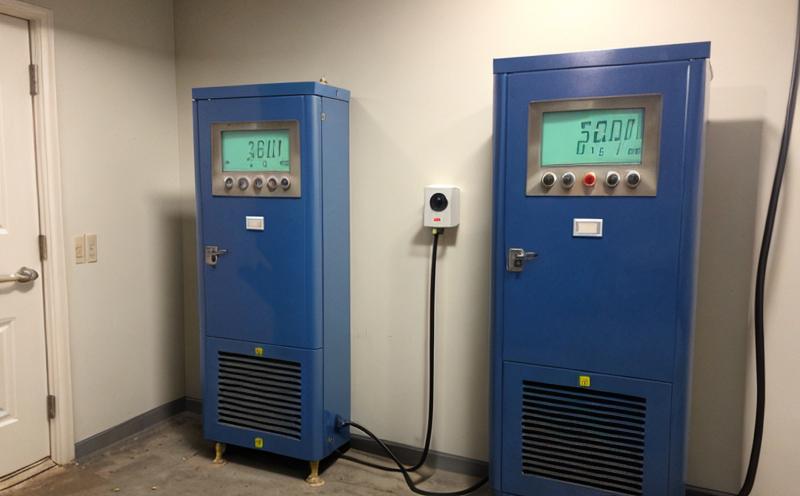NIOSH 5040 Diesel Particulate Matter Monitoring Testing
The NIOSH 5040 method is a critical standard used in the evaluation of diesel particulate matter (DPM) exposure in work environments. This testing ensures that employers comply with occupational health and safety regulations, particularly those related to respirable DPM levels. The primary objective of this test is to monitor and quantify the concentration of DPM in air samples collected from industrial settings where diesel engines or generators are used.
Compliance with this standard is essential for ensuring worker safety, as prolonged exposure to high concentrations of DPM can lead to adverse health effects. The Occupational Safety and Health Administration (OSHA) has set permissible exposure limits (PELs) based on the results obtained from NIOSH 5040 testing.
The test involves several stages: sample collection, transport, and analysis. During sample collection, technicians use specialized samplers to draw air samples over a specified period. These samplers are designed to capture only respirable particles, which are those that can be inhaled deeply into the lungs. After collection, these samples must be transported under controlled conditions to avoid any changes in particle concentration.
The analysis stage is where the expertise of our laboratory shines through. Our team employs state-of-the-art equipment and follows stringent protocols laid out by NIOSH 5040. The process begins with the extraction of DPM from the samples using a combination of solvent and ultrasonic bath techniques. Once extracted, the particles are quantified using an aerosol mass balance system.
The precision and accuracy of this method depend heavily on adherence to all procedural steps. Our technicians undergo rigorous training to ensure they handle each sample with utmost care. We also employ quality control measures throughout the process, including regular calibration of equipment and performance checks. These precautions are vital in maintaining the integrity of our results.
The importance of this testing extends beyond mere compliance; it plays a crucial role in enhancing workplace safety and productivity. By identifying potential exposure risks early on, employers can implement targeted mitigation strategies to protect their workforce. This proactive approach not only safeguards employees' health but also helps prevent costly accidents and legal disputes.
- Q: What is the primary purpose of NIOSH 5040 testing?
- This test aims to monitor and quantify diesel particulate matter in air samples collected from industrial settings. It helps ensure compliance with occupational health and safety regulations set by OSHA.
Applied Standards
The NIOSH 5040 method strictly adheres to the guidelines provided in the National Institute for Occupational Safety and Health’s (NIOSH) Manual of Analytical Methods. This standard is widely recognized for its reliability and accuracy, making it a preferred choice among regulatory bodies worldwide.
When conducting this test, we ensure that all procedures comply with NIOSH 5040 specifications to guarantee consistent results across different samples and locations. Compliance with these standards also enhances the credibility of our findings in court or during audits.
The use of international standards like ISO 9817:2006 further reinforces the quality of our testing. These additional standards provide a broader framework for best practices, which we incorporate into our methodologies to ensure excellence in every aspect of our work.
Quality and Reliability Assurance
At our laboratory, maintaining high standards of quality and reliability is paramount. We have implemented robust quality assurance programs that encompass all stages of the testing process, from sample collection to final analysis.
We employ advanced monitoring systems that track every step of the procedure, ensuring accuracy and consistency in results. Our team regularly participates in proficiency testing programs organized by reputable organizations such as A2LA (Accredited Laboratory Association) to validate our methods and identify areas for improvement.
In addition to internal audits, we also conduct external reviews conducted by independent experts who assess our processes periodically. This continuous assessment ensures that we remain at the forefront of technological advancements and best practices in occupational health testing.





